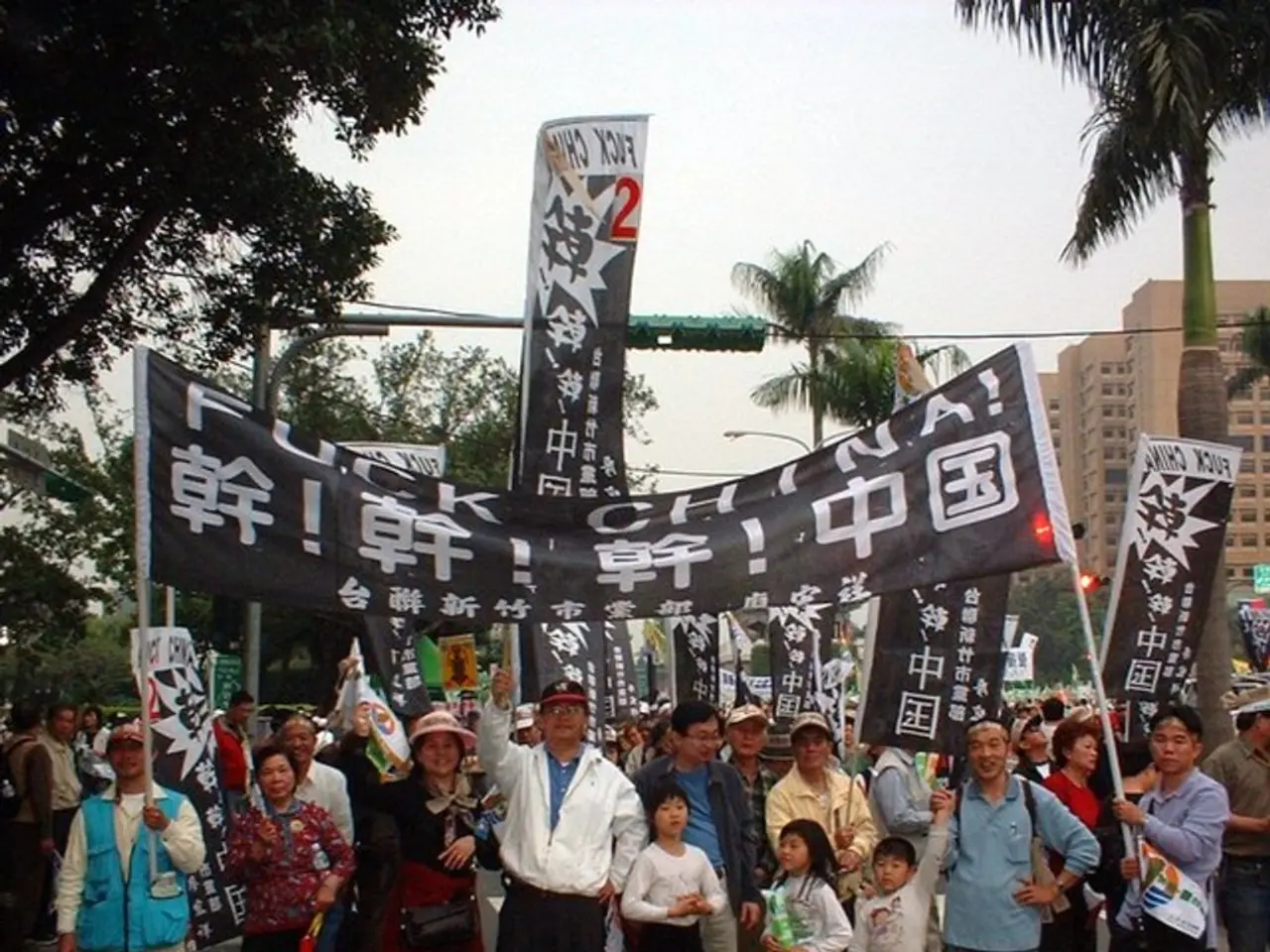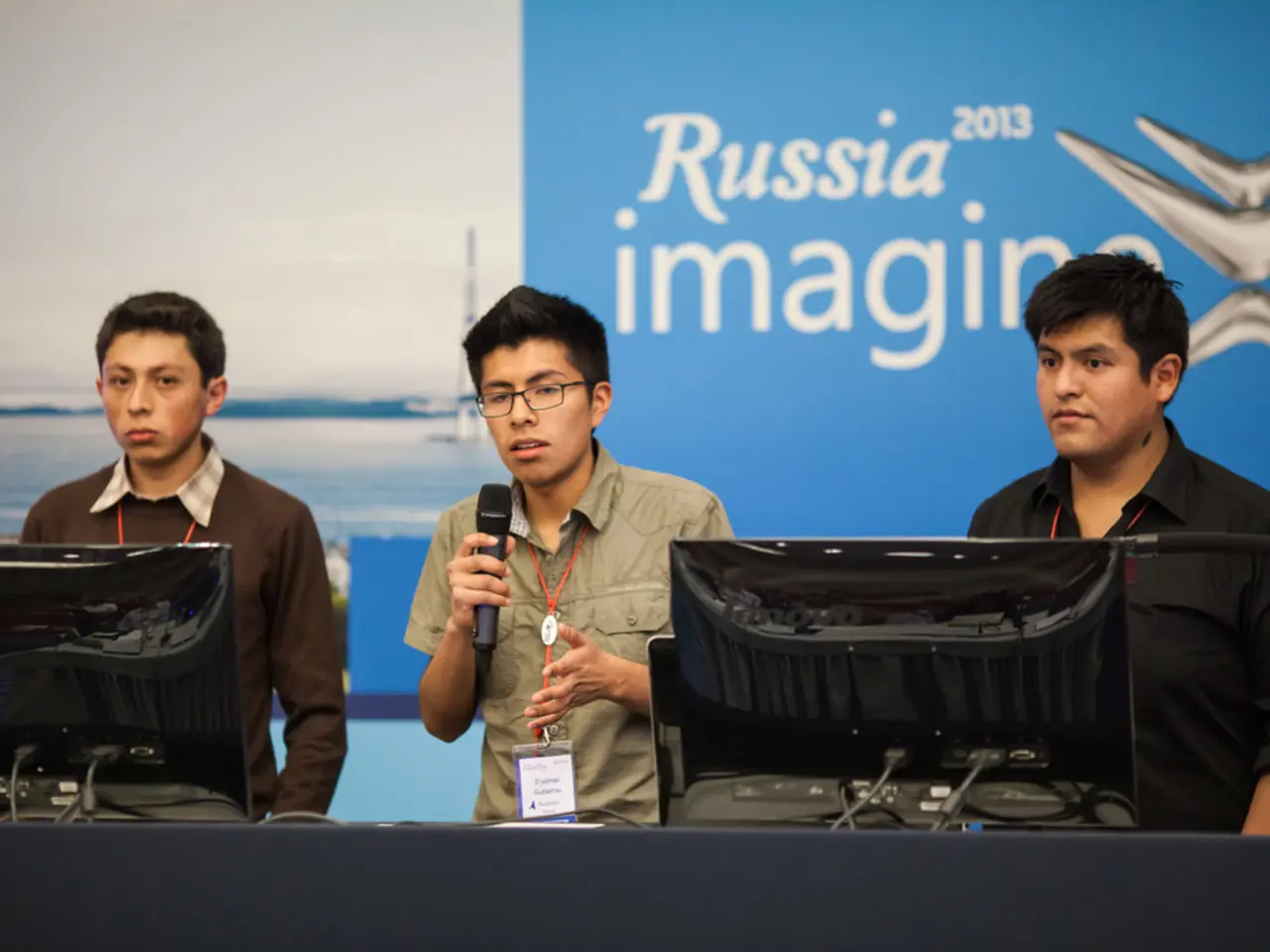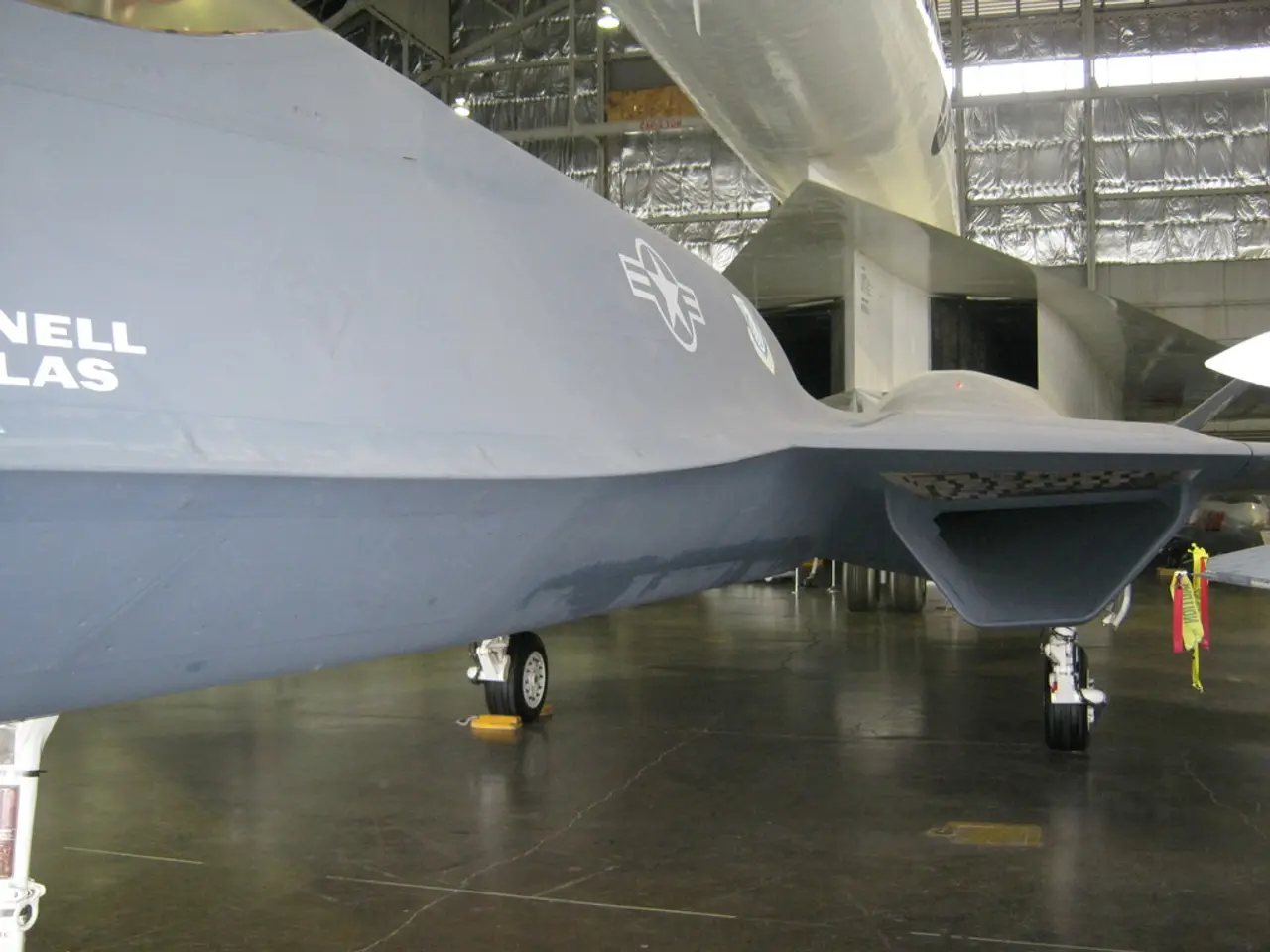Foreign Minister Wadephul Meets Jordanian Counterpart Safadi Amidst Heated Israel-Iran Conflict
Jordanian and Israeli Foreign Ministers Meet: Wadephul Hosts Safadi - Jordanian and Foreign Ministers Safadi and Wadephul engage in a meeting.
In the bustling heart of Berlin, German Foreign Minister Johan Wadephul and his Jordanian counterpart, Ayman Safadi, recently convened for a high-stakes meeting amidst the escalating Israel-Iran conflict.
For the past few days, Israel has been engaging in a seemingly relentless air campaign, targeting Iran's nuclear facilities and military installations. This aggressive move resulted in the loss of several high-ranking Iranian military commanders, igniting an equally fierce response from Iran in the form of drone and rocket attacks on Israeli cities.
This tense situation has unfolded against the backdrop of the ongoing Gaza conflict, where Jordan has decisively turned down a proposal by US President Donald Trump to relocate the Gaza Strip's population. Approximately 5.5 million inhabitants of Jordan's total population of around 11 million are of Palestinian descent.
Israel's attacks on Iranian targets are part of a broader strategic objective. The Israeli Defense Minister, Israel Katz, and Prime Minister Benjamin Netanyahu have explicitly stated their intention to destabilize the regime of Iran's Supreme Leader, Ali Khamenei, and to potentially eliminate him. Their strategic bombings have focused on Iranian nuclear and missile sites, as well as missile storage and launch facilities in key Iranian cities.
Iran, though defiant, has been strategically weaker in its response, indicating some interest in negotiating an end to the conflict but unwillingness to compromise. Meanwhile, Israel continues to prioritize destroying Iranian ballistic missile systems and air defenses to preempt potential Iranian missile attacks on Israeli civilians.
The Israel-Iran conflict is not directly tied to the long-standing Israeli-Palestinian territorial disputes that have traditionally influenced Jordan's role in the region. Instead, it revolves around Iran's nuclear and missile threats. The Gaza Strip, primarily a stronghold of the militant group Hamas—which is backed by Iran—has been indirectly impacted, serving as a battleground in the broader Israel-Iran confrontation.
In summary:
- Israel's intensive air campaign aims to undermine Iran's nuclear program and reduce the threat posed by Iran's missile and military infrastructure (Katz, Netanyahu).
- Iran shows some willingness to negotiate but remains cautious and defiant (no concessions).
- Israel continues to focus on weakening Iranian ballistic missile systems and air defenses to protect Israeli civilians.
- Jordan and the Trump peace proposal are not directly tied to the current Israel-Iran conflict, which focuses on Iran's nuclear and missile threats rather than territorial disputes involving Jordan.
- The Gaza Strip, while impacted indirectly, is not the primary focus of the current Israel-Iran military strikes.
This ongoing conflict constitutes a pivotal moment in Middle Eastern geopolitics, holding far-reaching implications for the region.
The Commission, recognizing the escalating war-and-conflicts in the Middle East, has also taken a number of steps to improve the coordination of the activities of the European Union's external relations policy, especially in politics and general-news related to the Israel-Iran conflict.
German Foreign Minister Johan Wadephul's meeting with Jordanian counterpart Ayman Safadi could be a significant move in this direction, as it provides a platform for dialogue in a region fraught with tension and uncertainty.





